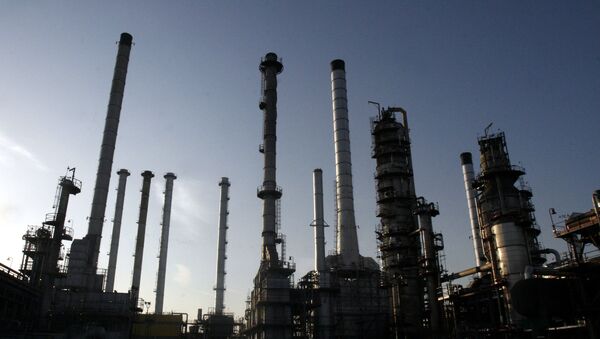According to the source, the request was voiced on 6 December by Iranian Oil Minister Bijan Zangeneh who noted that in March and April Tehran's oil output had not been affected by the re-imposition of US sanctions.
All 25 involved countries were expected to cut their oil production on a pro-data basis choosing either September or October output levels as their own baseline depending on their highest production level, the source noted.
The Organisation of the Petroleum Exporting Countries (OPEC) are currently negotiating the future of the Vienna deal during the ministerial conference before putting the proposal on the table for other 10 non-OPEC producers on 7 December for a final approval at the OPEC-non-OPEC ministerial gathering.
The statement follows by Zangeneh's statement that he made on 5 December, saying that Tehran was not going to discuss oil production quotas with OPEC while it was being subjected to Washington's sanctions.
The move comes amid the second package of US sanctions against Tehran that came into effect on 5 November following Washington's withdrawal from the Iran nuclear deal in May.
In late 2016, OPEC and non-OPEC states made a deal to cut oil production in a bid to stabilize oil prices. Since then, the agreement has repeatedly been prolonged with the final extension reaching the end of 2018.





